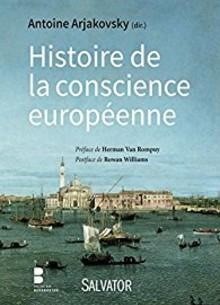
Description
Taja Vovk van Gaal, Academic Project Leader of the House of European History, contributes to this book with a chapter detailing how the museum has been delivered.
Available formats and languages
From the depths of history, Europeans have constructed an original version of unity in diversity, a form of common consciousness. This vision associates the Greek penchant for universality, the Roman predilection for law and the Judeo-Christian (and also Islamic) representation of an All-Powerful and Merciful God as well as the humanism of the Renaissance and the contributions of the Enlightenment.
The history of European Consciousness has also been marked by a recurrent tension between an attachment to a state of law and an imperialist vision of the world. The Europeans have examined the distinction between secular power and religious power, the participation of religions in the public good, the quest of a political system favoring the equality of citizens, a verticality of power which enables the transcendence of differences, But the European love for liberty is also accompanied by violence and a refusal of alterity.
European consciousness is also characterized by a sense of artistic creativity and scientific discovery. The European is someone who always seeks to lift his gaze to what is beyond. As is related in the myth of the abduction of Princess Europa by Zeus who takes her to Tyr, the European has tried to differentiate himself from his neighbors while borrowing the best of what they have.
The original method of this first History of European Consciousness is to propose a narrative, open and not exhaustive, of intersecting perspectives, at a moment when Europe questions itself about its future.